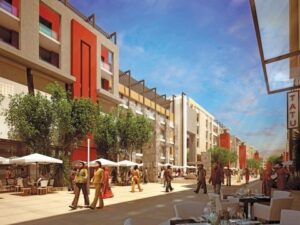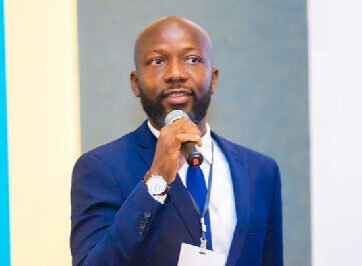They came with fancy names – City of Light; Hope City; Eco City etc. There was a time in the recent past when satellite cities became a thing, with ambitious projects launched with a great fanfare only to see these them become ghost towns a few years down the line. Africa is projected to have the fastest urban growth rate in the world: by 2050, Africa’s cities will be home to an additional 950 million people.
Much of this growth is taking place in small and medium-sized towns. So on the face of it, the idea of satellite cities is a great response to the urban sprawl, the spontaneous development of new communities around older existing cities.

Unmanaged however, urban sprawl poses a threat of increased congestion and energy use, pollution, traffic congestion etc. The question then is, are satellite cities the solution, if they are, why have some failed spectacularly? To answer these however, we will examine the form and nature of satellite cities and why these cities could or not be the solution in Africa’s and for that matter Ghana’s particular context.
What are they?
These cities are large planned, integrated, purpose-built developments nearby larger cities that are designed to curb urban sprawl to the suburb. They are characterized by well-organised urban spaces that are self-contained and gated to some degree. Contained within these spaces are typically shopping malls, office complexes, hospitals, schools and recreational spaces. Satellite cities are targeted towards the emerging new middle-class in African cities and expatriates.
Why some have failed?
An interesting story is told of the residents of Dunkunaa, the origin location for siting of another satellite cite- Hope City. It is alleged that the residents claimed the project had incurred the displeasure of the gods when the developers refused to “acknowledge” the chiefs and elders of the area. Far-fetched as it may sound, managing social change or inability to get buy-in of locals are one of the many factors contributing to failure of such projects.
With these developments targeting the middle class yet sited mostly on outskirts inhabited typically by the poor, they have been challenges with resettlement and even resentment as these developments are viewed as promoting exclusion or exclusivity. The social factors aside, the question of affordability has also been a concern in the past.
Even the middle class, categorized as those spending $2-20 a day, and the upper middle class as spending $10-20 a day have had difficulty purchasing some of these properties. Outside the Angolan capital, Luanda for instance, cities comprising of tower blocks of apartments selling at $150,000 to $200,000 each were empty and sat long on the market due to their pricing. Built by the Chinese, this example highlighted the problem of exporting whole models and planting it on African soil and expecting them to fruit or flower without considering the local context and environment.
What will make them work?
As obvious as it is, a lot of these projects are usually designed without involving the locals. Their involvement is more likely to elicit a buy-in. Satellite cities should include affordable housing as well as make use of differential pricing to accommodate income levels. Innovative finance schemes for both investors and end users in mortgage loans for instance should be accessible at low interest rates and should be more easily accessible to the larger populace.
Designs should incorporate local landscape and environment with the aim of preserving the environment. Such projects should also be given an indigenous personality, making use of aesthetics and designs in terms of colours, motifs and names with the entire architecture reflective of the culture and way of life of indigenes.
The idea of satellite cities clearly isn’t a mere fantasy after all, but as one of the old men in one of the rural localities where the satellite city never saw light, will likely say, a word to the wise…
The writer is the Executive director of Yecham Property Consult
& Founder of Ghana Green Building Summit.
Email: [email protected]
LinkedIn: Cyril Nii Ayitey Tetteh










